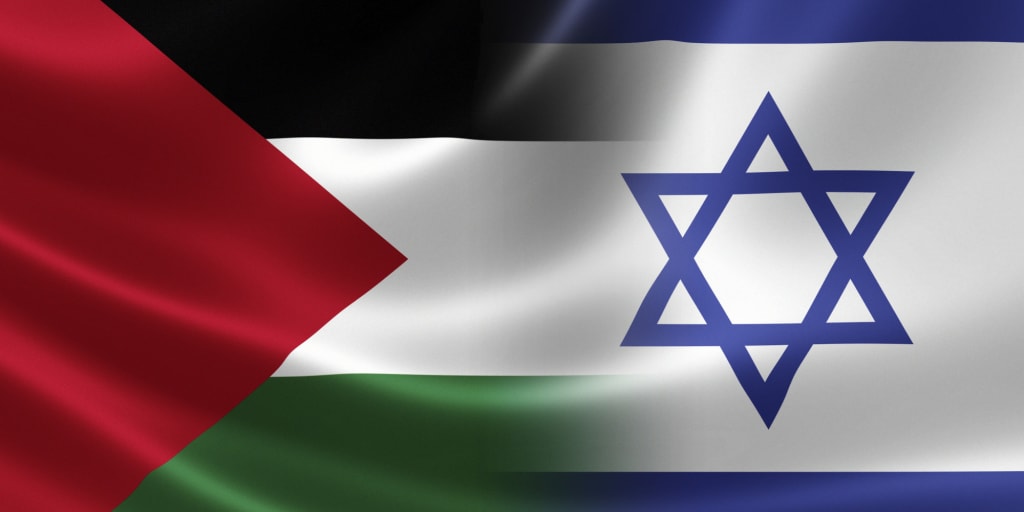
Israel has declared a state of war following a significant terrorist attack launched by Palestinian militants. At the heart of this conflict are two key factors: Israel's military control over the West Bank, one of the Palestinian territories, and its blockade of the other, the Gaza Strip. To gain insight into the situation, it's helpful to rewind to World War I when Britain assumed authority over the region. At that time, the land was primarily inhabited by Arabs, with a Jewish minority. This period saw the emergence of an Arab Rebellion and a continuous influx of Jewish immigrants, later compounded by the Holocaust during World War II and a substantial surge in Jewish immigration in 1947.
In 1947, the United Nations, with Australia playing a pivotal role, agreed to divide what was previously the British mandate for Palestine into a Jewish State and an Arab State. The Jewish side accepted this plan, leading to the formation of the state of Israel. However, the Arab side rejected it, igniting a one-year war as Britain withdrew. Over the years, Israel expanded its territory beyond what the UN had originally specified. Palestinians refer to this as the "Nakba" or catastrophe, as hundreds of thousands of Palestinians were displaced. By the end of the war, Israel controlled all the territory shown in blue on the map, except for Gaza, which was under Egyptian control, the West Bank under Jordan's control, and the Golan Heights under Syrian control.
In 1967, during what's commonly referred to as The Six-Day War, Israel captured the West Bank, the Gaza Strip, and the Golan Heights. Israel proceeded to occupy extensive Palestinian territory, a move deemed illegal by the UN. These areas are now recognized as the occupied territories. Israeli civilians have chosen to reside in these regions for political, religious, or economic reasons, which has become a major point of contention as Palestinians continue to be displaced, leading to protests and demonstrations.
In 2005, Israel withdrew from the Gaza Strip, a small coastal area inhabited by 2.3 million people and one of the most densely populated places in the world. Israel retained control over the airspace, sea, and the border crossings, which are essential for the import and export of goods. The crossing into Egypt is mainly used by people. Conditions in Gaza are challenging due to the blockade, with a high unemployment rate of 50% and deteriorating healthcare and infrastructure.
Hamas, a group formed in the late 1980s out of growing frustrations, is dedicated to the destruction of Israel and has been designated as a terrorist organization by many countries, including Australia. In 2006, Hamas won democratic elections but refused to renounce violence against Israel, leading to its isolation by the international community. A year later, Hamas took control of Gaza. While Israel withdrew from Gaza, it continues to occupy the West Bank. Consequently, the Israeli Army is the ultimate authority in the West Bank, where 3 million Palestinians reside, in addition to the 2.3 million in Gaza, all of whom desire an end to the Israeli occupation and blockade.
Another point of contention is Jerusalem, a city housing significant holy sites for three major religions: Judaism, Christianity, and Islam. Tensions in the region often escalate during major religious holidays, such as Yom Kippur in Judaism or Ramadan in Islam. This region has been a hotspot of tension for many years, and recent attacks indicate the potential for further escalation.
Regarding Jerusalem, Palestinians aspire to have East Jerusalem, which contains religiously significant sites for Muslims, Jews, and Christians, as the capital of their state. In contrast, Israel asserts that Jerusalem should remain its "indivisible and eternal" capital. Israel's claim to East Jerusalem is not recognized internationally. In 2018, the United States recognized Jerusalem as Israel's capital and moved its embassy there, although the extent of its jurisdiction in the disputed city was not specified.
About the Creator
Enjoyed the story? Support the Creator.
Subscribe for free to receive all their stories in your feed. You could also pledge your support or give them a one-off tip, letting them know you appreciate their work.





Comments
There are no comments for this story
Be the first to respond and start the conversation.